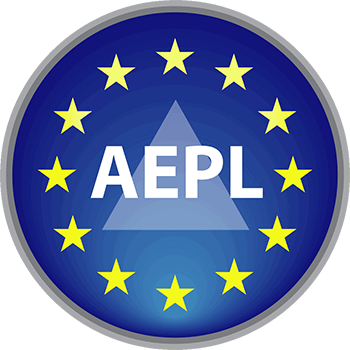Letter from AEPL "Artificial Intelligence and Fundamental Human Values".
Published on 17/11/2023Cher co-rapporteur de l’AI-ACT,
Dear Mr Tudorache, Member of the European Parliament,
Nous, soussignés, Guy T’hooft et Joël De Decker, souhaitons vous remercier pour les réponses très claires que vous avez données lors de la conférence « Bridging the Gap : Artificial Intelligence and Fundamental Human Values » qui s’est tenue le 15 novembre 2023 à la bibliothèque du Parlement européen.
As the time available to participants is very short, we are writing to provide you with the full text of our speech. We would be grateful for any comments you may have.
Prise de position de l’Association européenne pour la libre-pensée (AEPL)
Fin 2019, l’AEPL a écrit une lettre au président de la Commission européenne, disant notamment :
« Votre vision européenne de l’intelligence artificielle, donnant la primauté à l’éthique, a retenu toute notre attention….. Nous soutenons pleinement les objectifs décrits dans les « Lignes directrices d’éthique pour une intelligence artificielle digne de confiance » publiées au printemps 2020, suite aux travaux du groupe d’experts de haut niveau mis en place par la Commission européenne. »
Cependant, nous sommes préoccupés par une publication récente d’un groupe d’intérêt exposant la thèse suivante : « L’Europe sera distancée si elle se concentre sur l’éthique et ne suit pas le développement de l’IA ». L’AEPL considère que cet argument ne sert pas les intérêts des citoyens européens qui sont préoccupés par leurs propres valeurs éthiques, en particulier les droits de l’homme.
La vision européenne de « l’éthique dès la conception » confirme une approche ex ante permettant de fixer des objectifs éthiques avant la recherche et le développement technologique, et non après coup.
Dans le cadre législatif de l’Intelligence Artificielle, l’Europe se doit de poursuivre ce qu’elle a accompli en matière de protection des données personnelles : être une conscience exemplaire pour le reste du monde.
Nous constatons que le Parlement est particulièrement attentif à l’aspect de la reconnaissance faciale, qu’il souhaite interdire complètement. Mais ici, comme dans d’autres applications de l’Intelligence Artificielle, ce n’est pas l’algorithme lui-même qui est dangereux mais la manière dont il est utilisé.
La reconnaissance faciale à la chinoise, avec son marquage social, devrait être totalement interdite dans l’UE car elle va à l’encontre de ses valeurs. Mais la reconnaissance faciale sur nos appareils photo, qui déclenche l’obturateur au moment de la prise de vue, n’a rien à voir avec les valeurs de l’Union européenne.
Finally, we would like to express our strong support for the following three points:
1) L’intelligence artificielle se caractérise par le fait qu’elle peut, par construction, toujours se tromper, d’où les problèmes éthiques que pose l’utilisation de l’IA. Il est donc important que les différentes versions de l’AI-ACT soient continuellement modifiées pour tenir compte des changements technologiques rapides dans le domaine de l’IA et de l’évolution de l’opinion publique.
2) Le pire résultat possible serait qu’il n’y ait pas d’accord interinstitutionnel, ce qui entraînerait l’avortement de l’AI-ACT. Les citoyens européens attendent un pacte social qui réponde à leurs craintes, fondées ou imaginaires, concernant l’intelligence artificielle.
3) Comme vous l’avez confirmé à juste titre, l’éducation de « l’homme dans la boucle » est d’une importance capitale.
Nous restons à votre disposition pour tout complément d’information que vous souhaiteriez nous demander.
Veuillez agréer, Monsieur le Président, l’expression de mes sentiments distingués.
Joël DE DECKER Guy T'HOOFT
Administrateur de l’AEPL Président de l’AEPL
Leader du groupe AI de l’AEPL
























